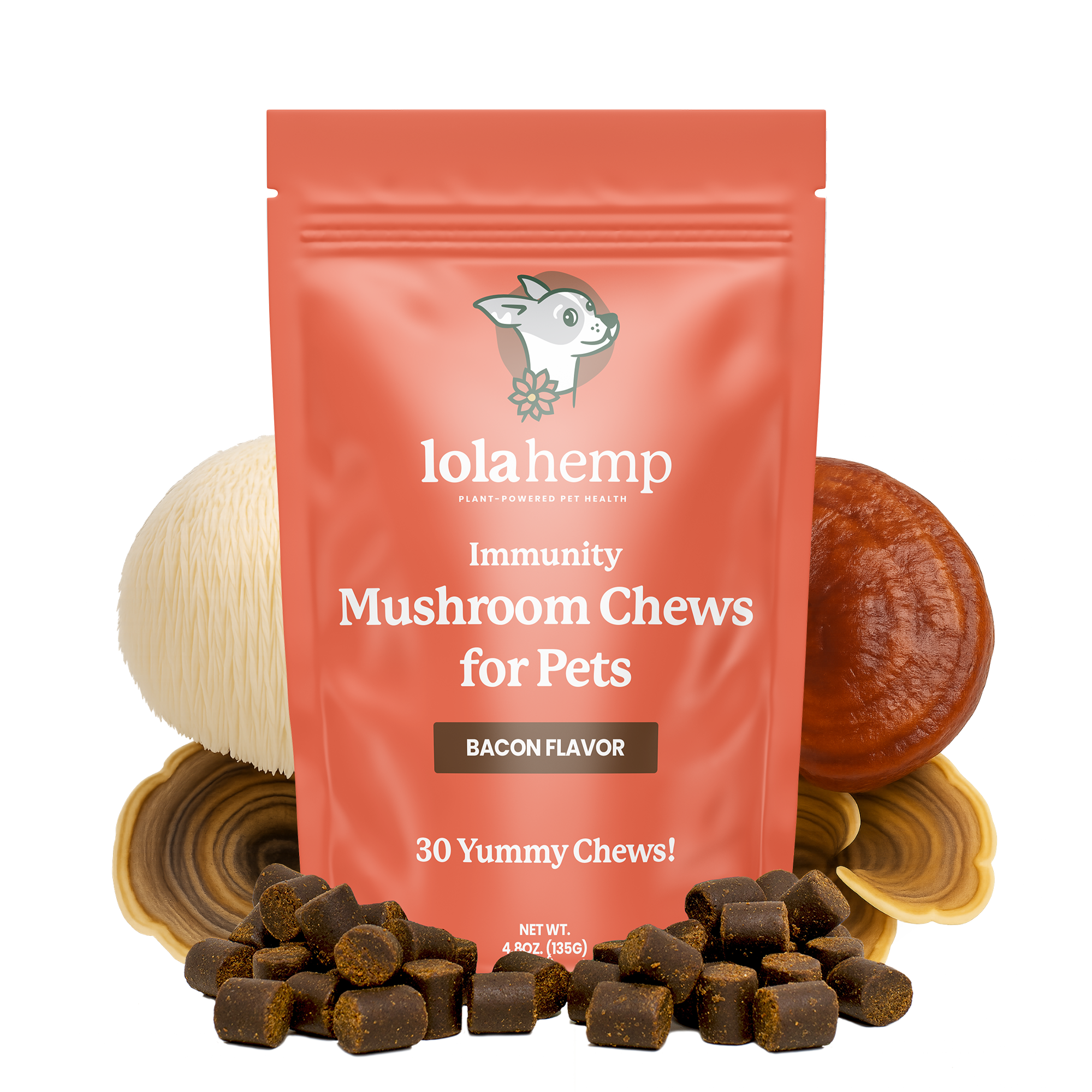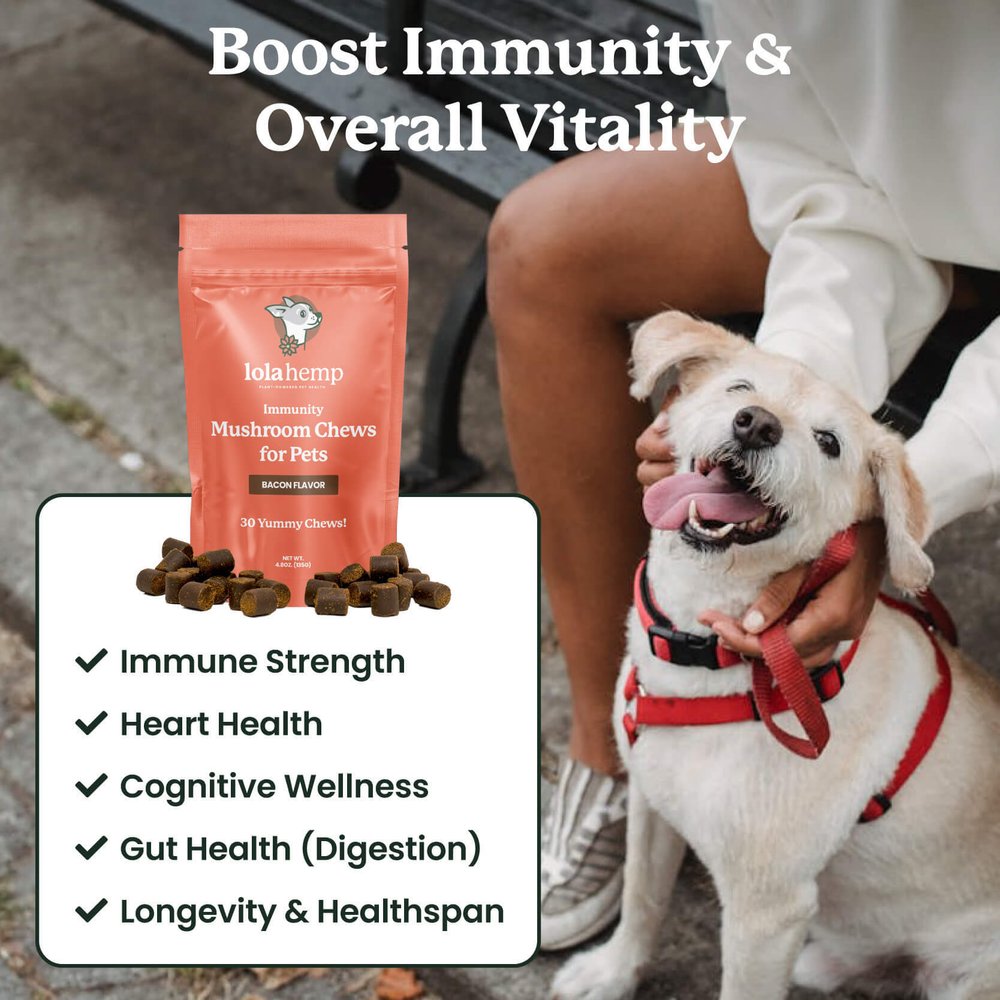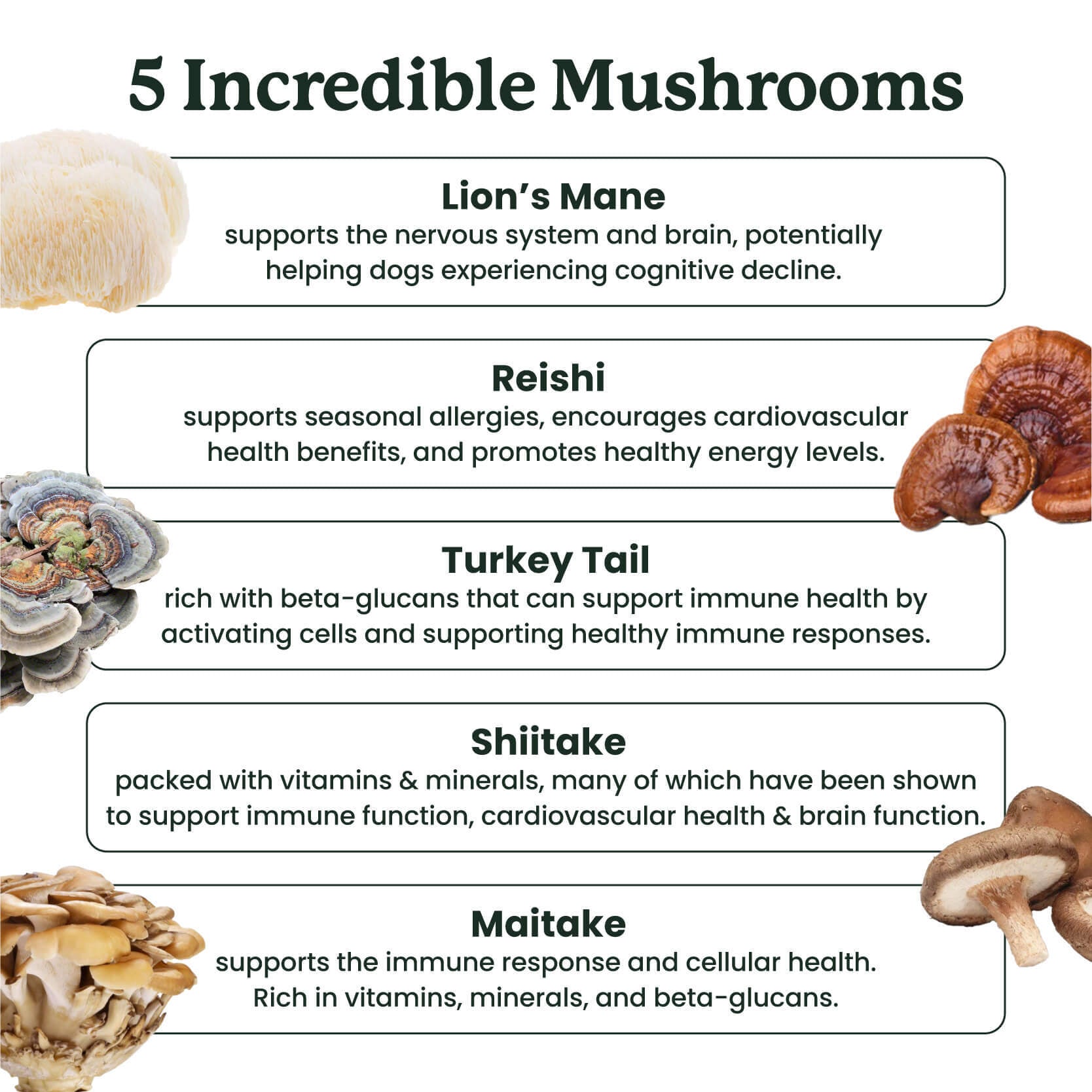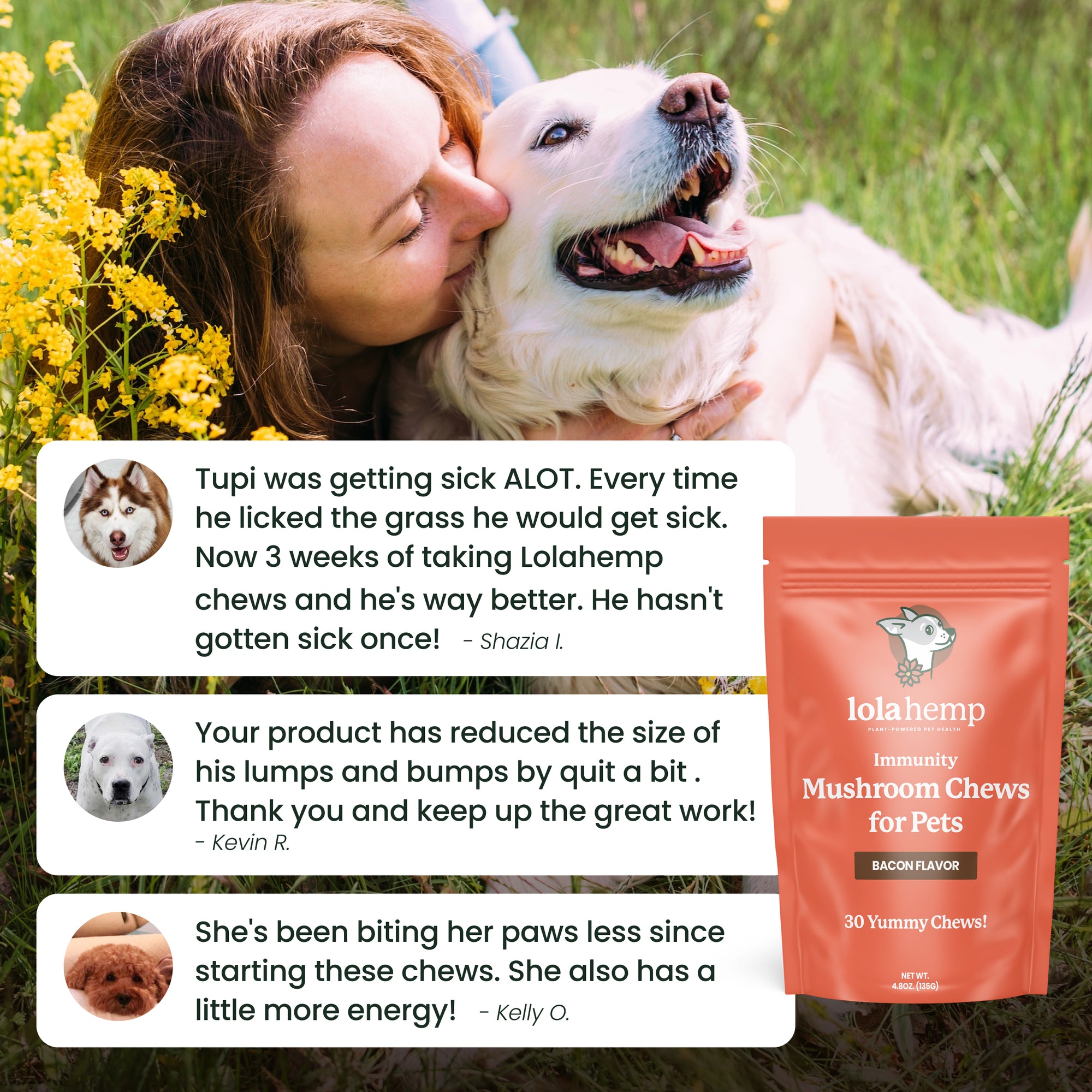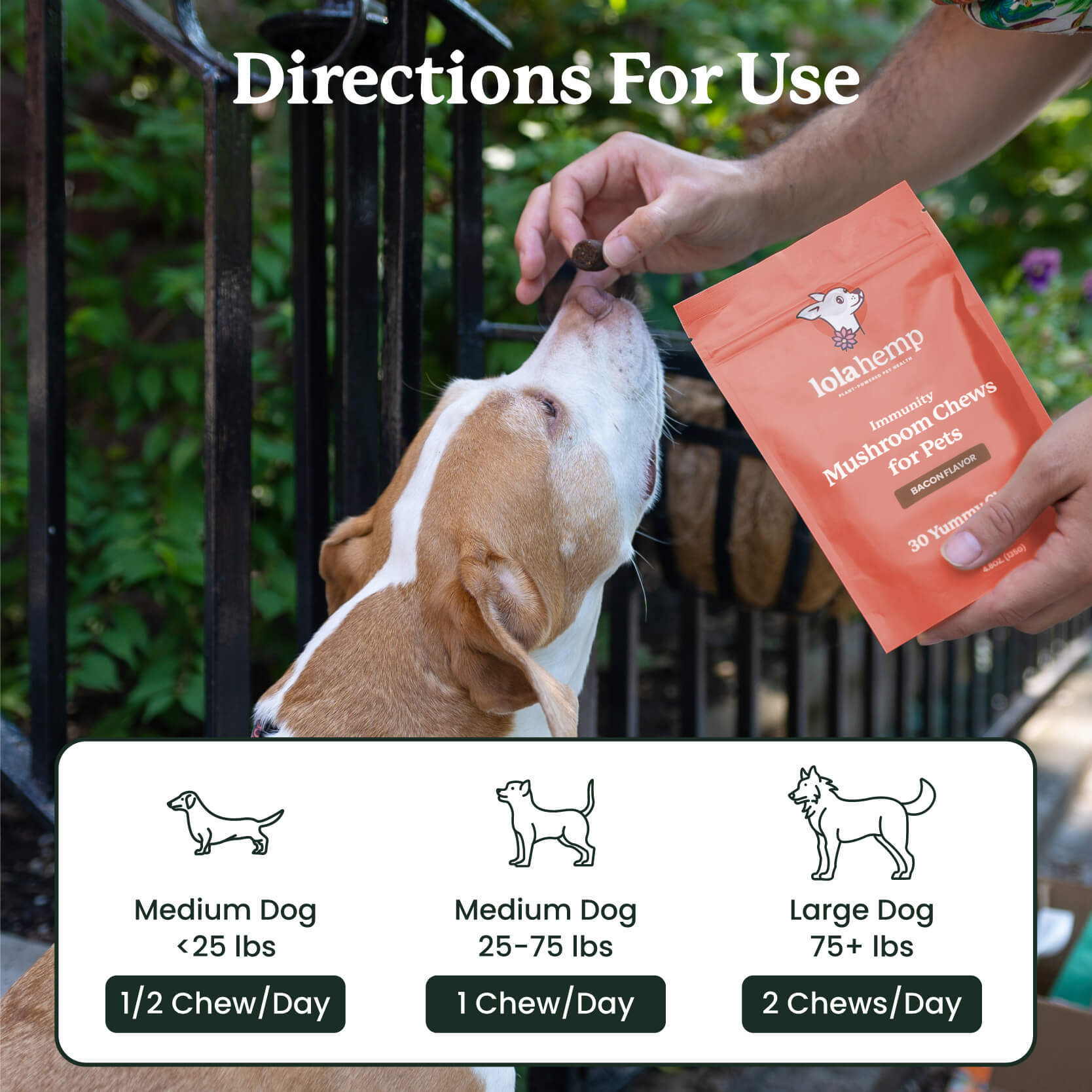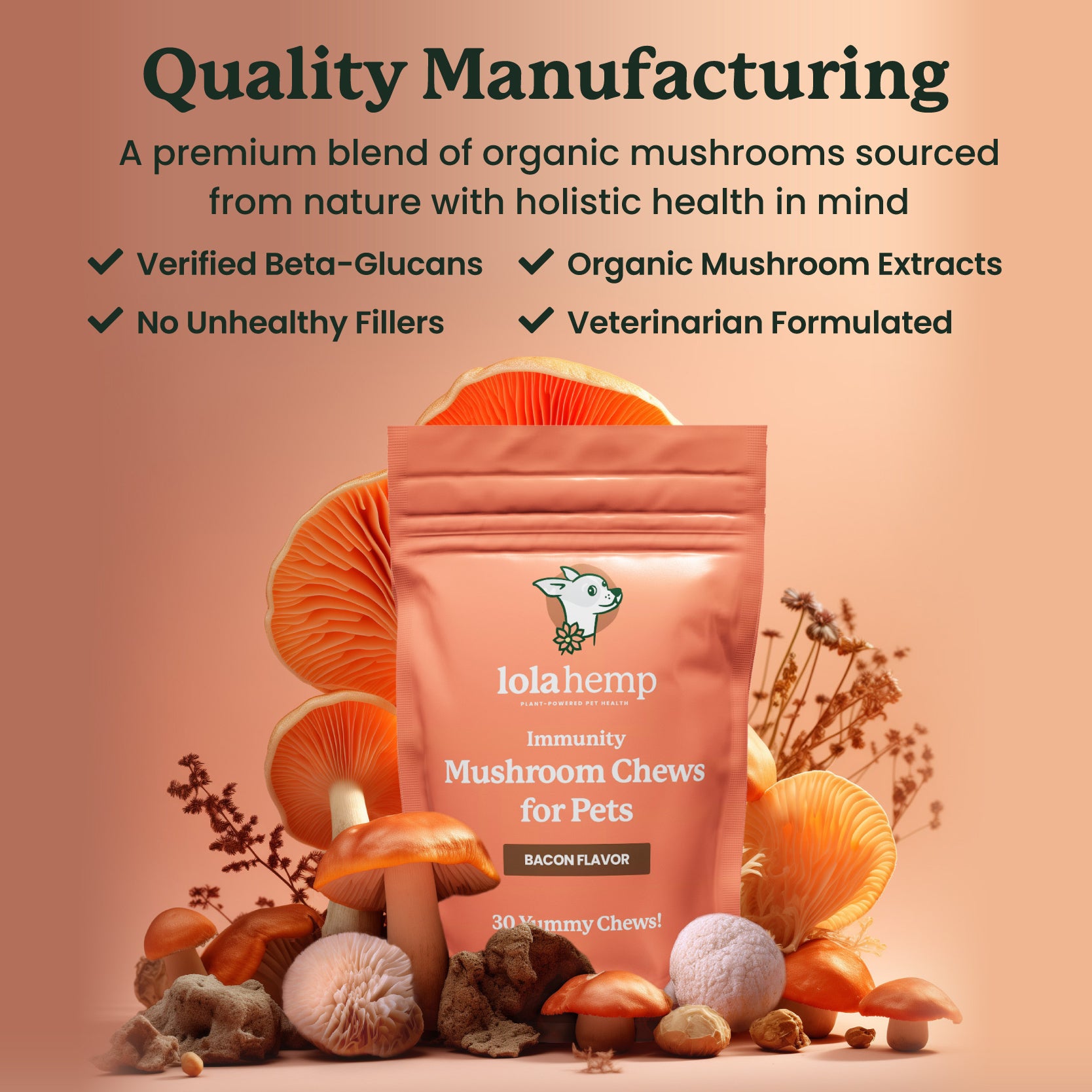If your dog has given you the puppy dog eyes as you enjoy your breakfast or if you have seen a dog grab a slice of our sandwich or loaf of bread and you are asking, "Is it safe for dogs to eat bread?" The answer is yes. However, it should be plain white or wheat bread, taken as the very occasional treat.
Some "human food" is not fit for your dog's consumption, including some of the common ingredients we use to prepare meals and would assume are safe for our dogs too. The same is true for many of the plants in our homes.
In this article, we will find out which bread is safe or dangerous for dogs to eat and the ingredients to keep their paws off of.
This guide will teach you what you need to know to stay vigilant about what your pup is eating to avoid toxin consumption. Let's learn more.

Is Bread Good for Dogs?
Many dogs love to explore, sniffing out new smells, sounds, and yes—even snacks. While your dog may eagerly eye your bread, it’s essential to be careful about sharing “human food” with them, as some ingredients can be harmful.
Plain Bread is Safe for Dogs in Moderation
Bread in its plain form is generally safe for dogs when given in moderation. However, certain ingredients often added to bread can be hazardous.
Common Ingredients in Bread That are Toxic to Dogs
Some products that are safe for human consumption are dangerous for dogs. When preparing your breakfast if you include these ingredients in the bread, avoid giving your pup a slice to snack on.
Chocolate
A lot of people love eating chocolate. This delicious treat is extremely hazardous for dogs and we should not be tempted to give our puppies a piece.
Chocolate is processed from the cocoa plant which contains two primary chemicals that make chocolate toxic when absorbed into the body. These chemicals are theobromine and caffeine, which impact the heart and muscle.
All forms of chocolate are dangerous for dogs. Keep them out of reach. A paper published in Merck Veterinary Journal highlights the fact that even by-products of cocoa and cocoa mulch cause deaths in animals.
Some of the signs of poisoning are:
- Vomiting
- Diarrhea
- Fast breathing
- Incoordination
- Seizures
- Fever
- Coma
Xylitol
Xylitol is a sugar alcohol used as a preservative and sweetener. It is found in food products like gum, mint, dessert bread, and other baked goods; non-food products like sunscreens and toothpaste; nutritional supplements, and vitamins.
Xylitol influences the control of blood sugar in the body. Blood sugar is regulated by the release of insulin from the pancreas. Xylitol stimulates the release of a high amount of insulin, rapidly decreasing blood sugar and resulting in hypoglycemia. Xylitol poisoning presents the following symptoms:
- Vomiting
- Weakness
- Lethargy
- Hypokalemia
- Seizures
- Coma
Raisins
Raisins, grapes, and tamarind belong to the Vitis genus family and all contain a high concentration of an organic acid called tartaric acid, toxic to dogs.
Keep grapes, raisins, and tamarind away from dogs because they can lead to renal failure within 72 hours of ingestion. Raisins add no nutritional value. Substitute them with healthy nourishing fruits like apple slices.
Some of the symptoms of raisin poisoning are:
- Vomiting
- Lethargy
- Anorexia
- Polydipsia
- Dehydration
Garlic and Onion
Garlic and onions release sulfur-containing oxidants when they are mechanically reduced by chopping, cooking, and chewing. The oxidants can lead to oxidative damage to the Red Blood Cells which causes hemolytic anemia. The signs of garlic and onion poisoning are:
- Weakness
- Pallor
- Icterus
- Collapse
Macadamia Nuts
Not all types of nuts are toxic but some of them are, therefore beware of giving any nuts to your dogs.
Research is showing that macadamia nuts are toxic to dogs. They are grown from Macadamia integrifolia plant in the continental US, and M. tetraphylla in Hawaii and Australia. Scientists are still unsure of how the toxicity mechanism works but clinical evidence indicates that macadamia nuts are harmful to dogs. When your dog eats macadamia nuts the following symptoms manifest within 12 hours:
- Vomiting
- Weakness
- Hyperthermia
- Tremors
Nutmeg
Nutmeg is a fragrant powder spice commonly used in baking and cooking. Nutmeg contains a toxic compound called myristicin. Ingesting nutmeg can cause a stomach upset especially when taken in large quantities. Some of the symptoms of poisoning include:
- Vomiting
- Diarrhea
- Decreased appetite or anorexia
- Disorientation
- High blood pressure (hypertension)
- Dry mouth
- Abdominal pain
- Seizures
Butter
Butter is not toxic to our pups but it is unhealthy. According to the Pet Poison Helpline, if your pet accidentally eats butter they might suffer a stomach upset and inflammation of the pancreas. Butter is unhealthy and it is the reason why experts don't recommend dogs eat toast with butter.
Salt
Salt, or sodium chloride, plays an important function in the body. Excess salt is harmful not only to humans but to dogs too. Excess salt consumption can lead to hypertension and high blood pressure in dogs. Salt toxicity in dogs is accompanied by vomiting and various other signs like:
- Diarrhea
- Decreased appetite
- Incoordination
- Excessive thirst or urination
- Seizures
- Coma
Sugar
Sugar is not poisonous to dogs but consumption in large amounts is unhealthy. Dogs can have naturally occurring sugar in fresh vegetables or fruits like strawberries but should not have sweeteners like toxic xylitol. Other sweeteners to avoid include brown sugar, cane sugar, and powdered or processed sugar.
As a pet parent, you should work with your vet to create a nutritious meal plan for your pup. Always consult the vet before introducing new treats to your dog's diet.

Breads That Dogs Can Eat
Never let your dog eat uncooked bread yeast. Dogs can eat the following breads in moderation, so long as they are cooked.
1. Sourdough Bread
Dogs can eat small amounts of sourdough bread so long as it is cooked. Make sure your pup doesn't eat raw dough.
2. Rye Bread
Yes. Dogs can eat plain rye bread occasionally as a treat. However, dogs allergic to wheat or grain should not eat rye bread.
3. White Bread
Yes, plain white bread is safe to consume in small amounts because it doesn't cause stomach upsets. Dogs with wheat or grain allergy should avoid it.
4. Wheat Bread
Yes. Dogs can eat wheat bread but if your dog is allergic to wheat, they will experience stomach discomfort.
5. Wholemeal Bread
Wholemeal bread or brown bread is safe for dogs to consume. It is important to remove seeds, nuts, or fruits because they are toxic to dogs.
6. Plain Toast
Yes, dogs can eat toast. It should be taken in moderation as an occasional treat.
7. Bread Crusts
Yes. Dogs can eat crusty bread—it is the same as eating plain bread.
Can Puppies Eat Bread?
Yes. Puppies can occasionally eat small quantities of bread but you should watch out for allergic reactions to wheat.
Breads That are Dangerous for Dogs to Eat
The following breads shouldn't be given to dogs.
1. Garlic Bread
No. Dogs cannot eat garlic bread because garlic is toxic to canines. Garlic and onions contain sulfur compounds that damage red blood cells and cause anemia.
2. Banana Bread
No. Bananas are safe for dogs, but banana bread is made with other ingredients like nutmeg, raisins, sugar, and macadamia nuts, which are toxic to dogs.
3. Pumpkin Bread
No. Pumpkin is safe for dogs but pumpkin bread is made with ingredients like macadamia nuts and nutmeg which are toxic.
4. Buttered Toast
No, dogs should not eat toast with butter. Butter is rich in fat and can cause stomach upset.
5. Seeded Bread
No. Dogs cannot eat seeds and other additives in bread like nuts, chocolates, and raisins.
Final Thoughts
Dogs can eat bread but there is no reason to feed your dog bread because it adds no nutritional value. Plain white or wheat bread is safe to be taken in small amounts as an occasional snack but some dogs may have wheat allergies and could get a stomach upset. Avoid uncooked dough and any bread with toxic ingredients.
You can focus on giving your dog healthy food like vegetables, lean meat, and fruits. Always consult your vet before changing your pet's diet and watch for any reactions.
Frequently Asked Questions About Can Dogs Eat Bread
Is bread safe for dogs to eat?
Yes, dogs can eat small amounts of plain white or wheat bread. It should be free from harmful additives and given occasionally as a treat.
Which breads are safe for dogs?
Plain white, wheat, rye, or wholemeal breads without seeds, nuts, or added ingredients are safe for dogs in moderation.
What breads should dogs avoid?
Dogs should avoid bread that includes chocolate, raisins, garlic, onions, nutmeg, macadamia nuts, or xylitol, as these are toxic.
Can dogs eat toast or crusts?
Yes, plain toast or bread crusts are safe in moderation. Avoid buttered or flavored versions.
Can puppies eat bread?
Puppies can have tiny portions of plain bread occasionally, but it offers no real nutrition and may cause allergies.
Why is uncooked bread dough dangerous for dogs?
Raw dough can expand inside the stomach and cause bloating or life-threatening gastric dilation (GDV).

